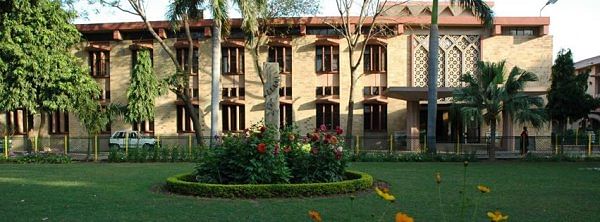B.Planning Syllabus and Subjects
The syllabus is composed of theoretical as well as pragmatic approaches to the subjects so as to inculcate the concepts accordingly among the students. The purpose of the B.Planning course is to create individuals who are skilled in the field of design, planning, architecture, studio planning, rural governance, operation management, and community planning. The B.Planning job scope is extensive, which makes it easy for graduates to land a good job in India or abroad after graduation.
Semester Wise B.Planning Syllabus
The semester-wise B.Planning syllabus focuses on studying the various concepts of housing, planning, settlement, urban design, studio planning, etc. A broad range of topics and concepts are covered with a prime focus on planning and design.
B.Planning course is a very diverse and flexible course. B.Planning subjects are available to the candidates in a core and elective subject pattern to make the course more flexible and diversified in nature. Mentioned below is the semester wise syllabus for Bachelor in Planning:
B.Planning First Year Syllabus
| Semester I | Semester II |
| Urban Planning | Elements of Economics |
| Regional Planning | Planning Studio II |
| Planning Studio | Applied Hydrology and Geology |
| Fundamentals of Building Structure | Planning with Quantitative and Statistical Methods |
| Basic Design | Techniques of Planning |
B.Planning Second Year Syllabus
| Semester III | Semester IV |
| Planning Studio III | Planning Practice |
| Settlement Geography | Community and Housing Planning |
| Techniques of Planning II | Traffic and Transport Planning |
| Demography and Urbanisation | Resource Development and Management in Ecological Planning |
| CAD in Planning | Settlement Sociology |
B.Planning Third Year Syllabus
| Semester V | Semester VI |
| Urban Development and Sustenance | GIS for Planning |
| Planning Legislation | Project Formulation and Management |
| Geo Informatics | Planning Design Lab |
| Planning and Management of Utilities and Services | Informal Sector Planning and Management |
| Landscape Design and Planning | Urban Management |
B.Planning Fourth Year Syllabus
| Semester VII | Semester VIII |
| Elective | Elective II |
| Urban Governance | Urban Management II |
| Rural Governance | General Proficiency |
| Disaster Risk Management | Human Values in Planning |
| Urban Finance | Thesis |
B.Planning Subjects
The syllabus of B.Planning is designed in a manner so as to provide in-depth analysis and pragmatic knowledge of the subject matter. The course focuses on the concepts of planning and design through the various core and elective subjects in the syllabus. The B.Planning subjects focus on the various aspects of planning and designing with additional highlights on the topic of studio planning, community planning, and disaster management. The B.Planning subjects list for the 4-year course duration is mentioned below:
- Disaster Risk Management
- Urban Planning
- Rural Governance
- General Proficiency
- Regional Planning
- Applied Geology
B.Planning Core Subjects
Given below are the essential core subjects of the B.Planning course:
- Fundamentals of Building Structure
- Basic Architectural Design
- Surveying and Photogrammetry
- Landscape Planning and Design
- GIS Planning
- Planning Thesis
- Planning and Design Lab - VII (Regional Planning)
B. Planning Elective Subjects
Given below are the elective subjects in B.Planning that students can choose from
- Urban Management
- Environmental Studies
- Evolution of Aesthetics, Culture and Technology
- Urban Finance and Accounting
B.Planning Course Structure
B.Planning course structure is divided into a core and elective subject pattern. The syllabus duration is composed of 8 semesters. The course is designed in a way to give a detailed understanding to students in the fields of planning and design keeping in mind the industrial relevance. Students are also supposed to submit a thesis by the end of the B.Planning syllabus to attain their graduation. The B.Planning course structure across 8 semesters is listed below:
- VIII Semesters
- Core Subjects
- Elective Subjects
- Research Projects
- Computer Practicals
- Thesis
B.Planning Teaching Methodology and Techniques
The teaching methodologies in the B.Planning syllabus duration involves a lot of dynamism along with the academic reading approach. The B.Planning subjects list includes project planning, field survey, research methodologies along with traditional lecture-based teaching. Some of the B.Planning teaching methodologies and techniques are mentioned below:
- Academic lectures
- Conceptualized learning
- Field survey
- Computer lab work
- Seminars with guest speakers
- Working with industry professionals
B.Planning Projects
The B.Planning projects display the understanding and approach that the student has gathered from the course duration. At times, the B.Planning project topics can act as a launching pad for various successful careers. Recruiters from the industry often look at and analyze the project topics and their components so as to select the best candidates. Mentioned below are some of the popular B.Planning project topics:
- Effects of road transportation in the rural milieu
- Environmental planning and policy analysis
- Scope of the urban environmental system
- Understanding global regional economics
- Environmental redesign within the urban space
- Challenges of rural governance compared to urban space
B.Planning Reference Books
B.Planning reference books act as a foundational stone for the students to understand all the core concepts. The B.Planning books are available to students through both the offline and the online modes. Mentioned below are some of the popular B.Planning books for reference:
| Name of the Books | Authors |
| The Image of the City | Kevin Lynch |
| Planning and Urban Design Standards | Steiner and Butler |
| The Social Life of Small Urban Spaces | William Whyte |
| A New Theory of Urban Design | Christopher Alexander |
| The City in History | Lewis Mumford |
















